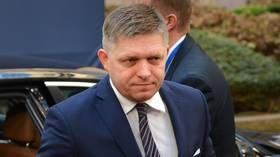Opinions divided over global crisis effects on Russia
The government is not expecting the global financial crisis to affect Russia this year, according to Finance Minister Aleksey Kudrin. But experts say Russia’s financial system is under serious threat.
Speaking at the State Duma last week, Aleksey Kudrin admitted the situation on the global markets is grave, but insisted Russia is a save haven.
“The crisis being experienced by global financial markets is unprecedented in scale and depth. It will create some additional challenges and risks for the Russian financial system this year, but we are not expecting a crisis to develop in Russia. The Central Bank and the government will compensate for any short-term liquidity shortages,” he said.
Aleksey Kudrin said Russia's government has mapped out measures to maintain money supply on the Russian market, support banking liquidity and guarantee the supply of credit in the economy and economic growth.
“We've decided to allocate capital to several state corporations, in particular Rosnanotekh and the corporation for the advancement of the housing economy on the domestic market. Around $US 14 billion will be floated for a long period,” Kudrin said.
But independent experts aren’t convinced. Yakov Mirkin, Head of the Institute of Financial Markets, says the domino effect from collapsing markets elsewhere will inevitably affect Russia.
“When many non-residents leave the market by, say, selling stocks or bonds – something we’re seeing now – it's called capital flight. It puts great pressure on the local currency and eventually leads to serious financial problems,” said Yakov Mirkin.
Non-residents account for roughly 70 per cent of Russia’s debt market.
Mirkin believes the financial “infection” is already evident.
More than $US 180 billion left the country just in the first two months of this year. But, he adds, timely actions by the Central Bank can help kill the crisis in its infancy.
Meanwhile, experts agree that the Russian economy’s dependence on oil prices tops the list of the most ominous financial risks.












